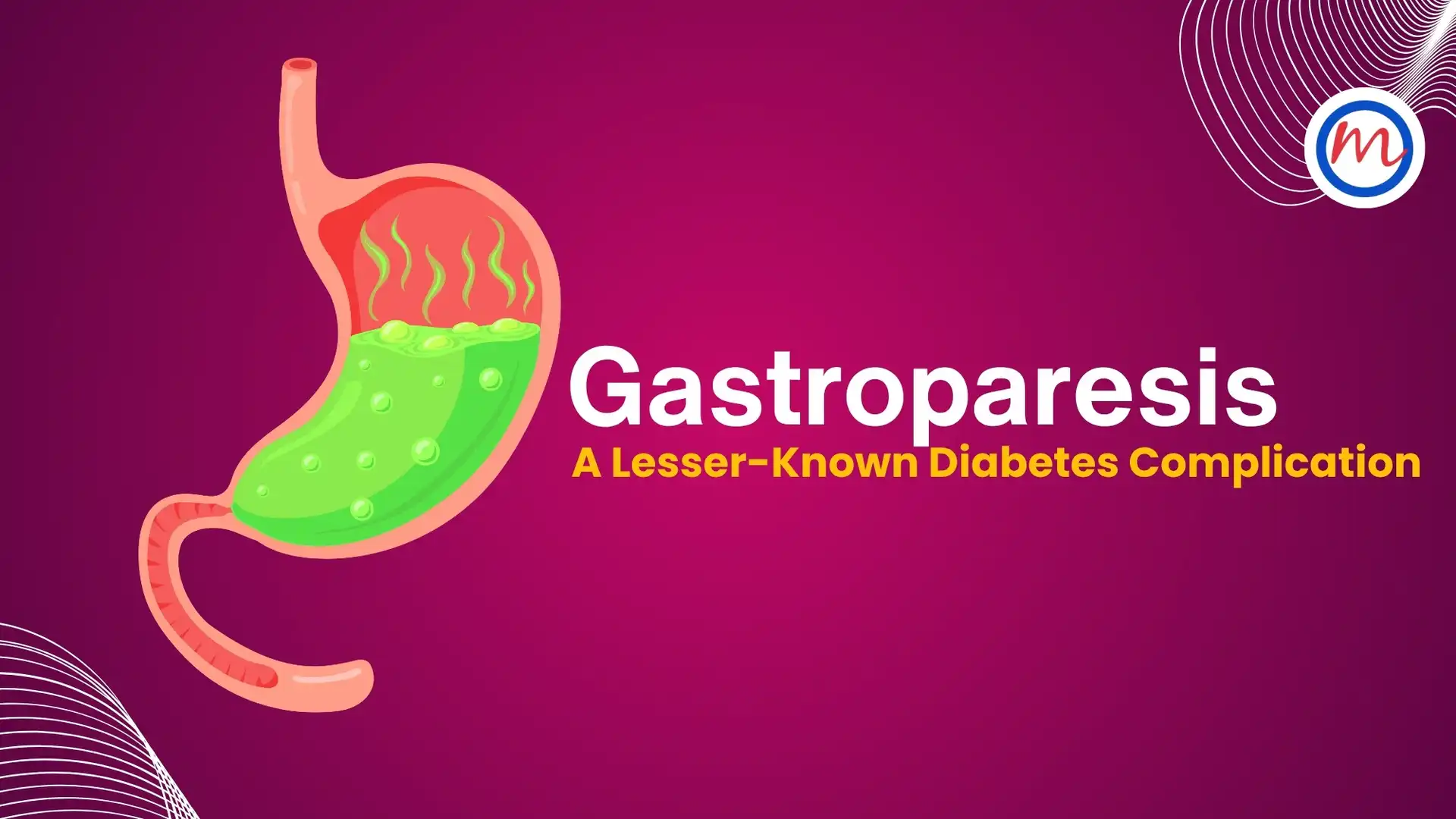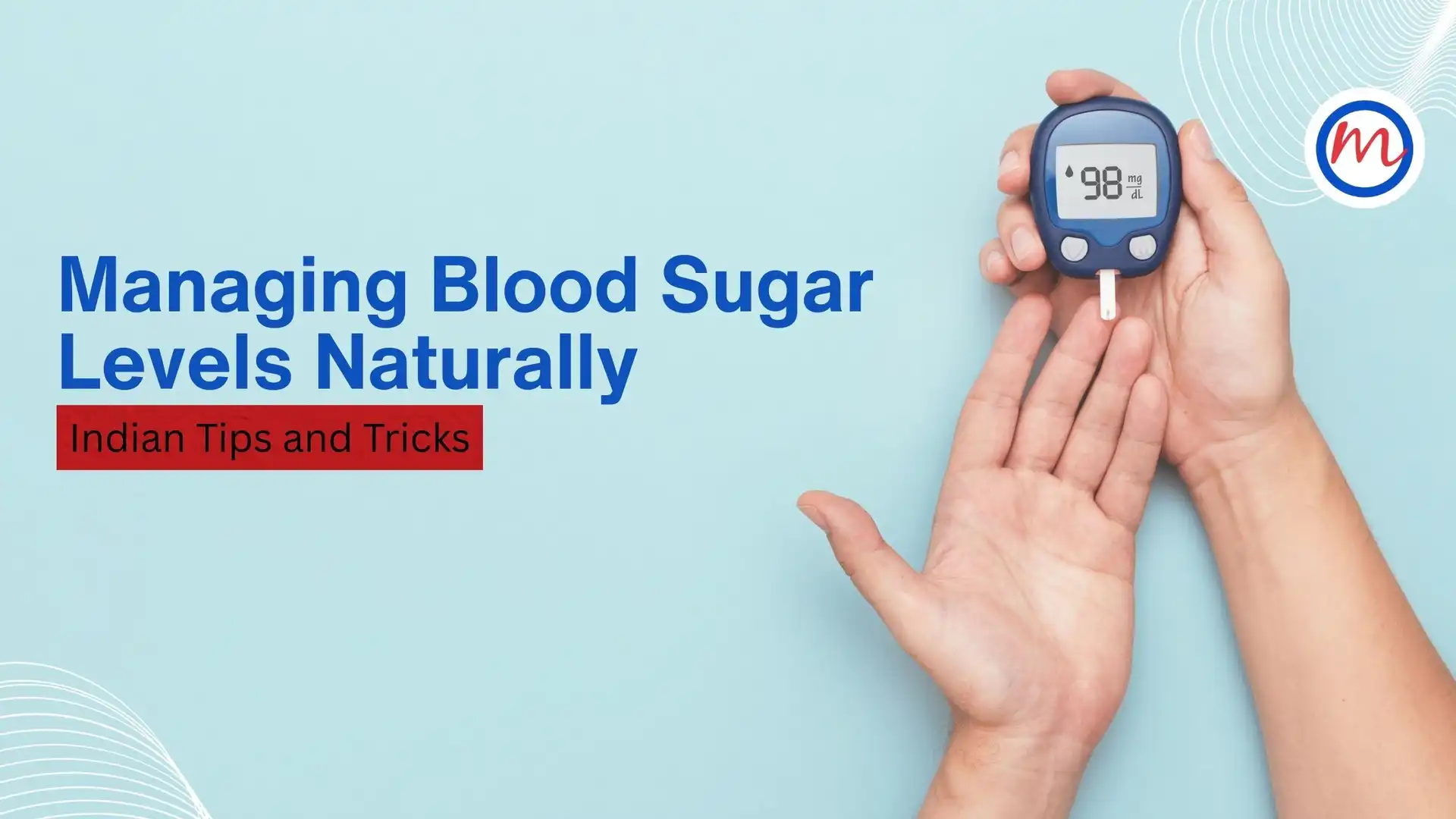Gastroparesis – A Lesser-Known Diabetes Complication
Introduction
When it comes to diabetes complications, most people are aware of problems like kidney damage, eye disease, or nerve issues in the feet. However, one lesser-known yet serious complication is gastroparesis — a condition that affects the stomach’s ability to empty food properly. In individuals with diabetes, especially those with long-term high blood sugar levels, gastroparesis can become a frustrating and dangerous issue.
In this article, we will break down the connection between diabetes and gastroparesis, symptoms to look for, and how you can manage it effectively.
What is Gastroparesis?
Gastroparesis literally means “stomach paralysis.” It happens when the vagus nerve, which controls the muscles of the stomach, gets damaged. This causes the stomach to empty food much more slowly than normal. The result? A range of symptoms including bloating, nausea, vomiting and unpredictable blood sugar levels.
Gastroparesis is more common in people with type 1 diabetes, but it also occurs in those with type 2 diabetes, especially if blood sugar has been poorly controlled for several years.
How is Gastroparesis Linked to Diabetes?
High blood sugar over time damages nerves throughout the body, including the autonomic nerves (such as the vagus nerve) that manage the stomach muscles. When the vagus nerve is affected, the stomach cannot contract and push food into the small intestine efficiently.
This delayed emptying not only affects digestion but also makes it difficult to control blood sugar. When food remains in the stomach for too long, blood sugar levels become unpredictable, rising hours after a meal rather than immediately after eating.
Symptoms of Gastroparesis
If you have diabetes and experience the following symptoms often, it may be worth discussing gastroparesis with your doctor:
- Feeling full quickly after starting a meal
- Nausea and vomiting (especially undigested food hours later)
- Bloating and stomach discomfort
- Weight loss
- Poor appetite
- Erratic blood sugar levels (with unexplained highs or lows)
These symptoms can interfere with nutrition, insulin use and quality of life.
How Gastroparesis Affects Diabetes Control
Gastroparesis complicates blood sugar management in several ways:
- Delayed food absorption means insulin may work too soon, causing hypoglycaemia.
- Unpredictable digestion makes it hard to calculate the right insulin dose.
- It increases the risk of both high and low blood sugar.
This creates a vicious cycle, where poor blood sugar control worsens gastroparesis and vice versa.
Diagnosis and Tests
Doctors usually diagnose gastroparesis through:
- Gastric emptying study (radioactive meal test)
- Upper GI endoscopy
- Ultrasound or CT scan (to rule out other causes)
If you have persistent gastrointestinal symptoms, ask your doctor for a referral to a gastroenterologist familiar with diabetes-related complications.
Treatment and Management Tips
While there is no cure, gastroparesis can be managed through lifestyle changes and medications:
- Blood Sugar Control
The first step is to keep your blood sugar in check. This reduces nerve damage progression and eases symptoms.
- Change in Diet
- Eat smaller, more frequent meals.
- Avoid high-fat and high-fibre foods, which slow digestion.
- Go for easily digestible foods like soups, pureed vegetables and soft rice.
- Drink plenty of fluids during meals.
- Medication
Doctors may prescribe medications to:
- Stimulate stomach muscle contractions (prokinetics)
- Reduce nausea and vomiting
- Treat bacterial overgrowth if present
- Meal Timing
Avoid lying down after eating. Give your stomach at least 2–3 hours to digest before bedtime.
When to Seek Medical Help
If your symptoms affect your eating habits, insulin use or daily life, consult a specialist. Ignoring gastroparesis can lead to malnutrition, weight loss and poor diabetes control.
To get expert care, consult the team at Dr. Mohan’s Diabetes Specialities Centre — where diabetes and digestive health are treated together for better outcomes.
Conclusion
Gastroparesis is one of the lesser-known yet serious complications of long-standing diabetes. It affects your digestion, blood sugar and overall well-being. The good news? With early diagnosis, dietary changes and strict glucose control, you can manage this condition effectively. Stay alert to symptoms and prioritise your gut health — it is a critical part of living well with diabetes.



